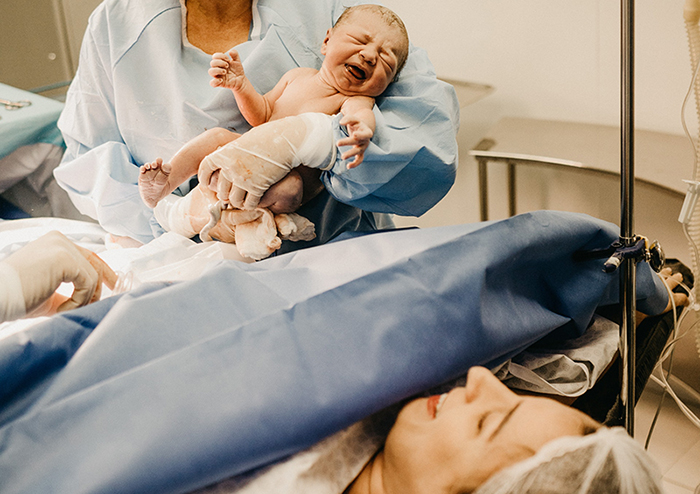Coronavirus, also called as 2019-nCoV, is a new virus that can infect pregnant women and can even pass to the unborn child. A preliminary study conducted on the virus shows that it may not transmit during pregnancy. This study was carried out on only those expecting mothers who were in their third trimester and delivered baby through C-section, or cesarean section. A few more studies are required to confirm the impact of virus on other groups of expecting mothers.
A study was done by Yuanzhen Zhang on Feb 12, 2020 at Zhongnan Hospital of Wuhan University, China to find the impact of COVID-19 disease on newly delivered babies to mothers who were infected by2019-nCoV virus.
The findings of the study published in the journal “The Lancet”, along with the news of an infant in China who got infected by 2019-nCoV virus in just 36 hours of his birth, does not give a clarity on whether the virus was passed onto the fetus by the mother while it was in the womb. It can also be the case, that the infant got infected by the virus due to close contact with his mother.
There is a possibility that infections might pass from a mother to her child in pregnancy, but the underlying mechanism in which happens is still not clear.
Scientists are researching on this topic to find out what has caused the infant to get infected after birth. It could be due to pathogens that may have travelled to the child via the placenta at the time of pregnancy, or by coming in touch with the fluids in mother’s body during delivery.
Based on the research done by The American College of Obstetricians and Gynecologists, if an expecting woman is infected by HIV, then the newly born can also become infected via coming in contact with the blood while delivery, or when the blood goes into the placenta at the time of labor contractions.
According to the Guardian, the possibility of transmission of a virus induced disease by above means is a rare occurrence.
A different study was performed on nine women who got infected by COVID-19 disease when they were between 36 and 39 weeks of pregnancy. Such occurrence of 2019-nCoV happened in Wuhan, China.
After C-section delivery, doctors took samples of umbilical cord blood, breast milk, amniotic fluid and samples from the throat of the newly born baby. These samples were analyzed in the operating rooms that they represent the best conditions in the womb.
The result of the analysis showed that none of these women caught chronic pneumonia after being infected by the disease. Their newborns were healthy without any trace of infection. Also, none of the collected samples tested positive with any sign of virus infection.
The study concluded with the statement that there is presently no medical evidence for intrauterine infection in expecting women who develops COVID-19 disease in their late pregnancy.
As the study only considered women who gave birth via C section, and in their third trimester, there is a need for a few more studies among pregnant women in varying stages of pregnancy like those who had given vaginal birth, and have got infected in first and second trimester.
In addition to it, studies “of expecting mothers with COVID-19 infection, and neonates will be essential to determine the health and safety of both expecting mothers and babies” exposed to the coronavirus.

